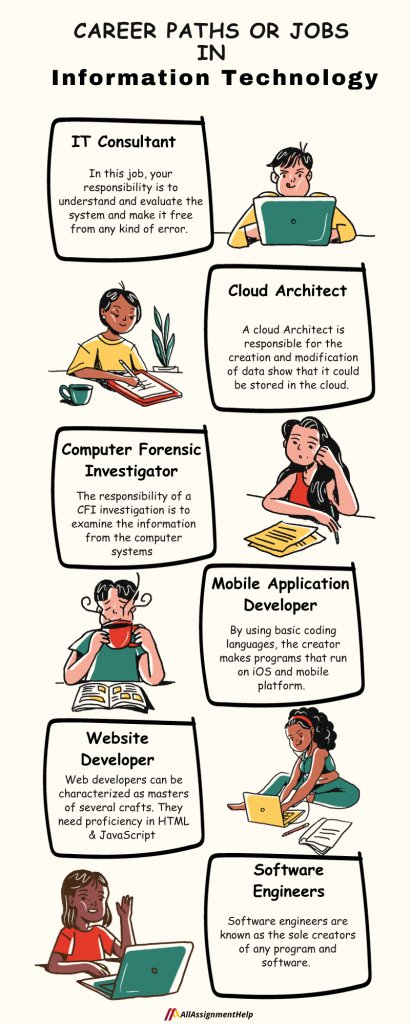Looking to venture into the world of information technology jobs? You’re in the right place. With the rapid advancement of technology, the demand for skilled IT professionals is higher than ever. From software developers to cybersecurity specialists, the opportunities in the IT industry are vast and promising. Explore the diverse roles and lucrative career paths that information technology jobs have to offer. Start your journey towards a rewarding and dynamic career today.
Exploring the World of Information Technology Jobs
Information technology (IT) has become a crucial component of almost every industry today, driving innovation, efficiency, and communication. With the rapid advancement of technology, the demand for skilled IT professionals continues to rise. This article delves into the diverse landscape of information technology jobs, highlighting the key roles, skills required, career paths, and future outlook in this dynamic field.
The Role of IT Professionals
Information technology professionals play a vital role in developing, implementing, and managing technology solutions that drive businesses forward. Some common roles within the field of IT include:
- Network Administrator: Responsible for maintaining and optimizing an organization’s computer networks.
- Software Developer: Designs, develops, and maintains software applications to meet specific business needs.
- Data Analyst: Analyzes data to provide valuable insights for decision-making and strategic planning.
- Cybersecurity Specialist: Protects an organization’s digital assets from cyber threats and ensures data security.
- IT Project Manager: Oversees the planning, execution, and successful completion of IT projects within an organization.
Skills Required for IT Jobs
While specific skills may vary depending on the role, there are several fundamental skills that are essential for success in the field of information technology. Some of these skills include:
- Technical Proficiency: A strong understanding of programming languages, software applications, and IT systems is crucial.
- Problem-Solving Skills: IT professionals need to be adept at troubleshooting issues and finding effective solutions.
- Communication Skills: The ability to effectively communicate complex technical information to non-technical stakeholders is vital.
- Adaptability: The IT landscape is constantly evolving, so professionals need to be adaptable and willing to learn new technologies.
- Attention to Detail: Precision is key in IT to ensure accuracy and avoid errors that could have significant consequences.
Career Paths in Information Technology
Information technology offers a multitude of career paths for professionals to explore, each with its own unique opportunities for growth and specialization. Some common career paths in IT include:
1. Software Development
Software developers are in high demand across various industries as organizations rely on custom software solutions to streamline processes and increase efficiency. Career progression in software development often involves moving from junior roles to senior positions such as lead developer or software architect.
2. Cybersecurity
The field of cybersecurity is critical in today’s digital age, with cyber threats becoming increasingly sophisticated. Cybersecurity professionals can advance into roles such as Chief Information Security Officer (CISO) or security consultant as they gain experience and expertise in protecting against cyber attacks.
3. Data Science
Data analysts and data scientists are responsible for extracting insights from large datasets to drive strategic decision-making within organizations. Career growth in data science involves progressing from entry-level data analyst roles to data scientist or data architect positions.
The Future of IT Jobs
The future of information technology jobs is bright, with continual advancements in technology shaping the industry. Several trends are expected to influence the future of IT jobs, including:
- Artificial Intelligence (AI) and Machine Learning: The integration of AI and machine learning technologies will create new opportunities for IT professionals to develop innovative solutions.
- Cloud Computing: The shift towards cloud-based services will drive the demand for cloud architects and engineers to manage and optimize cloud infrastructures.
- Internet of Things (IoT): The growth of IoT devices will require skilled professionals to build and secure interconnected systems.
- Cybersecurity: As cyber threats evolve, the need for cybersecurity experts will continue to grow, creating new roles and specializations within the field.
Overall, information technology jobs offer diverse opportunities for professionals to build rewarding careers in a fast-paced and ever-evolving industry.
the TOP 10 hottest IT Jobs in 2023
Frequently Asked Questions
### What are the typical job responsibilities of an IT support specialist?
An IT support specialist is responsible for providing technical assistance and support to customers and businesses. This may include troubleshooting hardware and software issues, setting up and maintaining computer systems, addressing network problems, and ensuring data security.
### What skills are essential for a career in information technology?
Key skills for a successful career in information technology include proficiency in programming languages, problem-solving abilities, strong analytical skills, excellent communication skills, attention to detail, and a solid understanding of IT systems and technology trends.
### What is the role of a systems analyst in the field of information technology?
A systems analyst is responsible for analyzing and designing information systems to help organizations operate more efficiently. They work closely with clients, users, and IT personnel to understand the organization’s needs and recommend solutions to improve processes and systems.
### How can one advance their career in information technology?
To advance in the field of information technology, individuals can pursue advanced certifications, continue their education, gain experience in different areas of IT, stay current with industry trends, network with professionals in the field, and take on leadership roles within organizations.
### What are the different career paths available in information technology?
There are various career paths in information technology, including software development, network administration, cybersecurity, data analysis, IT management, system architecture, database administration, and IT consulting. Each path offers unique challenges and opportunities for growth within the industry.
Final Thoughts
In conclusion, information technology jobs offer a vast array of opportunities for growth and advancement. With the ever-evolving tech landscape, IT professionals play a crucial role in driving innovation across industries. Specialized skills such as programming, cybersecurity, and data analysis are in high demand. Pursuing a career in information technology can lead to fulfilling work and competitive salaries. Stay updated on the latest trends and technologies to excel in the dynamic world of information technology jobs.






